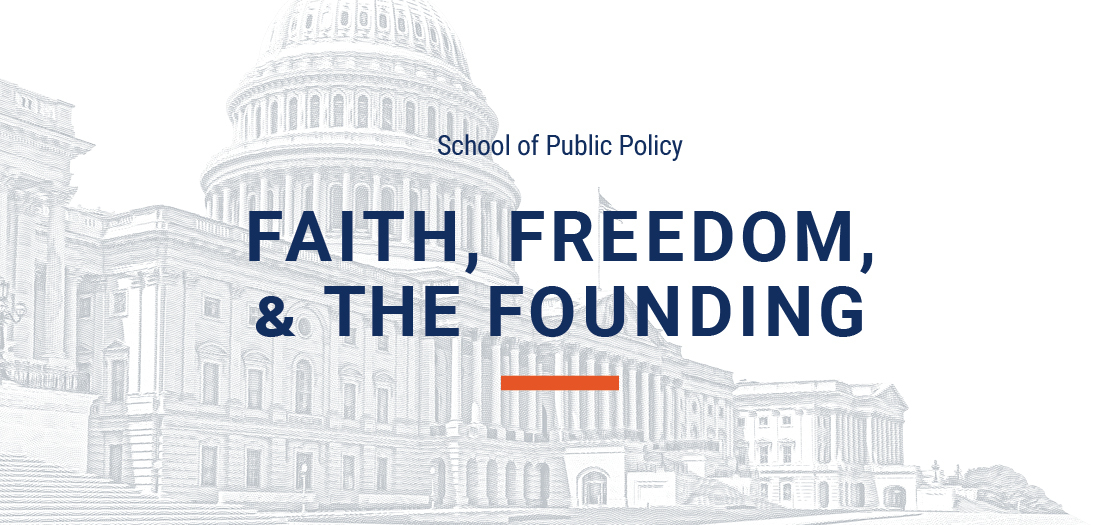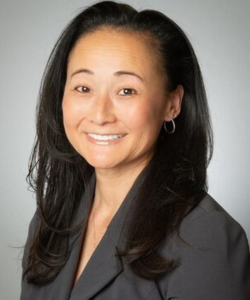Faith, Freedom, and the Founding

About the Series
In policy, political culture, and public mores, no nation’s founding has been so profoundly influenced by the Christian faith and the Bible than the United States of America. Of course, this influence was not just present in the late 1700s. Its foundations can be traced over a century prior as some of the first Europeans arrived on America’s shores for the express purpose of seeking the freedom to practice the Christian faith as they saw fit, and to establish self-government as a principle of the American Founding. Even before there was a United States, the weaving of faith and freedom, can be seen throughout the first decades of European presence on the continent going back to the 17th century.
From Winthrop to Roger Williams to William Penn and Isaac Backus, through the British charters for each of the first half a dozen colonies, the importance of the free practice of faith moved from custom to codification. Driven by different Christian denominations, the colonial charters set between 1632 and 1681, laid the groundwork for religious freedom as a legal protection.
This history led directly to the significant role the Christian faith had on the American Founding and its Founders. The faith-grounded arguments for independence came from pulpits and pamphleteers. Nathaniel Miles argued in his widely read Discourses on Liberty in 1774: “As to religion, I hold it to be the indispensable duty of all government to protect all conscientious professors thereof, and I know of no other business which government has to do therewith.” The sacredness of religious liberty embedded into the state constitutions and the Virginia Statue for Religious Freedom of 1786 eventually led to protections in the First Amendment to the Constitution. The intentional placement of this right is often dubbed, “the first freedom.”
Through a grant from the National Endowment for the Humanities, we will host five events between Pepperdine’s Southern California and Washington, D.C., campuses exploring this "first freedom" and recognizing its necessity as we approach the 250th anniversary of America.
Faculty Leadership
Abbylin Sellers, Gaylord Professor of Public Policy
 Abbylin H. Sellers is the Edward L. Gaylord Professor of Public Policy at Pepperdine
University in the School of Public Policy. She teaches welfare policy and the core
curriculum courses on great books and foundations of American constitutionalism, which
lay a foundation for effective public policy solutions being guided by moral and ethical
principles.
Abbylin H. Sellers is the Edward L. Gaylord Professor of Public Policy at Pepperdine
University in the School of Public Policy. She teaches welfare policy and the core
curriculum courses on great books and foundations of American constitutionalism, which
lay a foundation for effective public policy solutions being guided by moral and ethical
principles.
Before joining Pepperdine University, she was a professor of American Politics at Azusa Pacific University where she taught courses on the constitutional presidency, Congress and the legislative process, women and the political process, civil discourse in an age of political polarization, and served as a faculty fellow in the Honors College teaching American democracy for the Honors College. Sellers was awarded the university’s highest honor for teaching, the Teaching Excellence award in 2017.
Her research focuses on welfare policy, political behavior, and immigrant entrepreneurship, with her work appearing in Political Psychology; Politics, Groups, and Identities; Presidential Studies Quarterly; and the Journal of Military History. Her co-authored work has been recognized by the American Political Science Association for “Best Paper” for the Representation and Electoral Systems section in 2018. Sellers was awarded as a 2022-2023 Fulbright Scholar to teach American constitutionalism and the constitutional presidency in Japan at Yokohama National University and Hosei University (Tokyo). She annually serves on the summer faculty for the James Madison Foundation’s Summer Institute in Washington, DC.
Sellers earned her B.A. from Westmont College, M.A. in public policy from Regent University, and Ph.D. in political science from Claremont Graduate University.